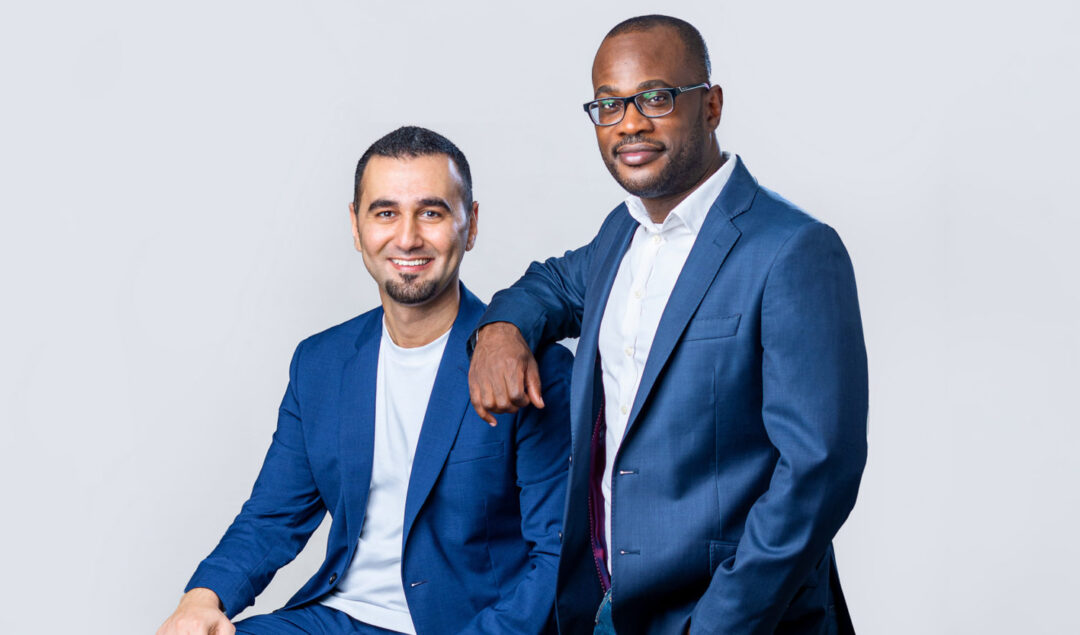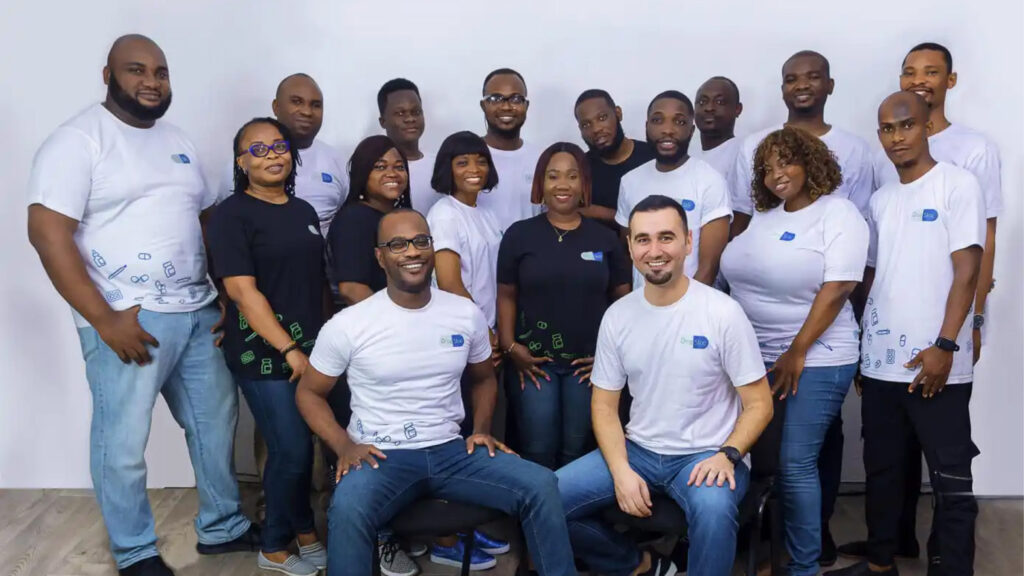From Running His Father’s Hospital At The Age Of 20 To Building One Of Nigeria’s Leading Healthtech Platforms

DrugStoc, described as Nigeria’s leading health tech platform, is focused on improving access to quality and affordable pharmaceuticals for healthcare providers and professionals on the continent.
Africa’s pharmaceutical market is primarily known for its broken supply chain and chaotic distribution channels, which affect the delivery of quality medicines, affordability of pharmaceuticals, and efficient healthcare delivery for health workers.
Each year, at least 150,000 Africans die from substandard and counterfeit medications and an even more significant number due to lack of access to affordable medicines.
Launched in 2017, DrugStoc currently has over 3,000 healthcare providers utilizing its platform in Nigeria. In the past two years, it has helped to process an average of 20 million prescriptions, which directly translates into 20 million people avoiding contact with the counterfeit substandard medication.
The firm also just announced their $4.4 million Series A round, and in 2019 was part of the top 10 finalists of the Jack Ma Africa Netpreneur Prize Initiative.
We sat down with one of the co-founders to discuss all things pre-seed, funding, finding the right co-founder and more.
Adham Yehia is the founder of DrugStoc, a leading African cloud-based platform that improves access to quality pharmaceutical and healthcare products. He has spent over ten years as a health systems specialist across primary and secondary care provision. Before co-founding DrugStoc, Adham co-founded Integra-Health, a health consultancy and IT Lab based on Lagos focused on integrating efficient management practices and processes into healthcare through technology.
His co-founder Chibuzo Opara has done outstanding work around health policy, financing, and supply chains across several countries, including the Netherlands, Nigeria, Belgium, Switzerland, Cameroon, Liberia, Kenya, and Vietnam. Before taking on the challenge of tackling poor access to pharmaceuticals with DrugStoc, he held positions with the European Union, the World Health Organisation, the World Bank, and the International Finance Corporation.
Hey, Adham, thanks for taking time to speak with us I know you’ve been busy – you and Chibuzo just raised $4M but let’s start from the beginning. Did you always know you wanted to get into tech and entrepreneurship?
Actually, no, I grew up in a medical family, and I guess many of us from developing nations feel the pressure to become that doctor or engineer. So I was always pushed to be a doctor from when I was little, and to be honest, I believed I wanted to be a doctor up until I finished high school.
My first degree was actually in genetics, and it was my pre-med, but in my fourth year, my dad, who owns a small hospital in Nigeria, had some medical issues. So I decided to move in and stay with him after my pre-meds.
So part of my journey started there [at the hospital] because I was put in charge of a hospital at 20 years old, and I quickly realized the limitations of being a healthcare professional in the sense that no matter how many patients you see, the country still tends to suffer from a bad healthcare system.
So I guess at 20, I started going into a lot of HR and managing a lot of doctors, accounting, and understanding business processes to standardize the operations. So that was my first introduction to entrepreneurship.
Are there things you learned in your 20s that you’ve applied at this stage of your career?
Yeah, absolutely. I think people management is number one. I think trying to understand how processes affect people and how people affect processes is number two because it’s pretty simple to draw something down on paper. Still, it’s a whole different story if you’re executing.

Culture and your approach matter too. I think those are things that I carried forward. I think the third thing I took is just self-discipline because no one’s going to chase you, but yourself. So just waking up every day with a specific goal and just knowing that that goal has to be achieved in a short period. I think that zeal and effort into my daily activities have come from my younger days, really.
The way you met your co-founder was quite easy in the sense that someone introduced him to you – but what advice would you give to sole founders who’re looking to take someone else on?
I think as a sole founder that’s maybe a year into his business; I think the thing that you have to realize is trying to understand your weakness, try to understand what the business needs and what you’re not too skilled at, or what you don’t have that much experience in because things change in startups, right. So your year one need might be something that might be very different to what you need in year two, or year three, or year four.
So it’s kind of hard to know precisely what you need as an early founder. But in addition to the skillset that you might not have, I think getting along with somebody is quite essential and the passion that the person feels towards the project or the idea is also quite important. So can you sit down for hours and discuss ideas with this person, or is it mainly just somebody that’s there for his time in exchange for shares or money? So I tend to go or lean more towards somebody that you can grow and adapt with than somebody that’s just technically sound.
You mentioned that your first Beta product ‘failed’ but you also realize that it needed to fail in order for you to get to the point you’re at now. Do you think some founders give up too easily?
I am a full advocate for being as stubborn as possible about what you’re trying to do; you might not get the right way at the beginning, but I think just persistently knocking that nail down is going to get you somewhere and you’ll be surprised where it gets you. So don’t be too rigid on what the idea is, per se, but be rigid about your passion to change or disrupt a particular sector, or bring value to a certain sector because the idea keeps changing, the more you learn about the landscape, about the regulation about your customer.
Okay so let’s talk about funding. Tell us your experience and any advice you want to give.
First, I think what helped us very early on was a Stanford seed. Stanford University had a seed program focused on innovation and emerging economies, and Drugstoc got selected early because I don’t think we were even turning over $100,000 yet. So we got chosen very early on to this Bootcamp for six months. The Bootcamp with Stanford geared our minds towards our value proposition. How exactly is this valuable? And how does the capital market work? How do VCs work? How does private equity work? How do loans work? How’s this institutional capital work?
But in terms of raising capital, I mean, I’m still learning every day. It’s not the easiest thing in the world, especially as busy co-founders that don’t have the luxury of just being co-founders and their companies are run by somebody else. I mean, we run our own company. So I guess patience is key. Don’t get discouraged. In the famous words of many of your favorite billionaires and successful companies – ‘a lot of people said no to them before they said yes.’
Anymore Advice?
So I feel like some founders tend to tell half the story because they believe that the other half is, is I guess, unique enough that it might be taken from you. But speak openly and talk to as many people as possible and be strategic about your goals and who you are, Also remember that for people at early-stage companies – people invest in founders.
So founders characters and work ethic backgrounds. So I think it’s important to show any investor that you have the network, the people and the passion, and the idea to execute.




